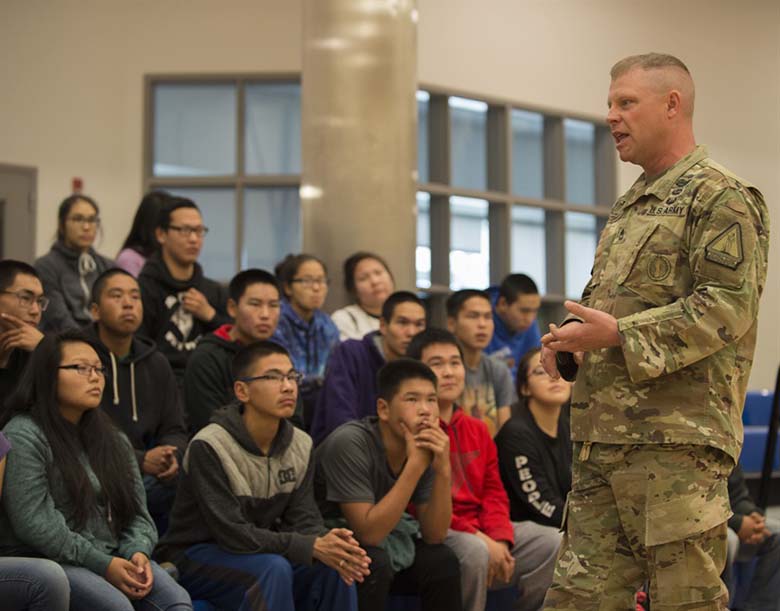We’ve had plenty of kids ask us whether or not Army recruiters get some sort of commission or bonus to get you to sign up.
The short answer to this: No.
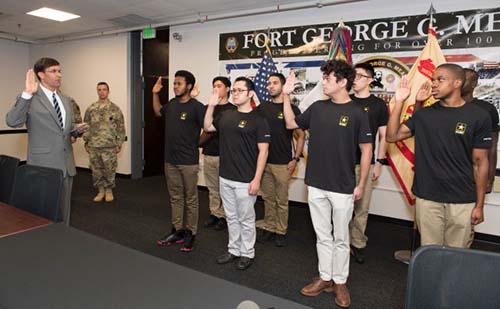
The long answer is, “it’s a bit more complicated”.
Many future recruits that are seeking gainful employment in the United States Army have fallen susceptible to the many rumors in regards to Army recruiters.
While Army recruiters do go through special training and gain extra pay for their work, they in-fact DO NOT get a commission based on individual recruits.
Army recruiters are granted special duty pay on their bi-weekly paychecks to compensate them for their extra work and training.
This special duty pay adds an additional monetary amount up to $375 to a recruiter’s base pay.
Aside from the padded paychecks recruiters are also entitled to clothing allowances and work phones, work computers, and work cars.
Every aspect of work for a recruiter is taken care of by the Army, ensuring the recruiter does not have to pay for or personally provide supplies to get their job of done.
Army recruiters are held to standards and quotas for their recruitment efforts.
The Performance Evaluation and Army Recruitment program is the measuring tape to which Army recruiters are held to in-order to judge their effectiveness.
The better a recruiter does in achieving the station’s goals, the better their evaluations and therefore the more likely they will be able to continue to rise in rank during their career.
Recruiter school and recruiting duty are seen as one of the most prestigious special duties an Army soldier can take on.
Therefore, many NCOs decide to become recruiters with the intent of a resume builder.
For the serious, career minded soldier, the placement of recruiter on their Enlisted Record Brief, which is essentially the Army’s resume, is more valuable than an actual bonus or commission.
Such a prestigious post does not come easy and it comes with its fair share of responsibilities.
Recruiting school is 47 days of training and is located at Fort Knox, Kentucky. During those 47 days you will learn all there is to know about how what is needed to be a successful recruiter.
A general knowledge of the almost 200 military occupational specialties, or MOSs, is a must.
Related Article – Army MOS List: A List Of All 159 Army Jobs
There is a lot to learn about the various systems used in recruiter’s offices and the administration techniques that are required to keep accountability of all future Army prospects.
5 Things Army Recruiters DO Get Paid For
1. Establish and maintain contact with potential recruits
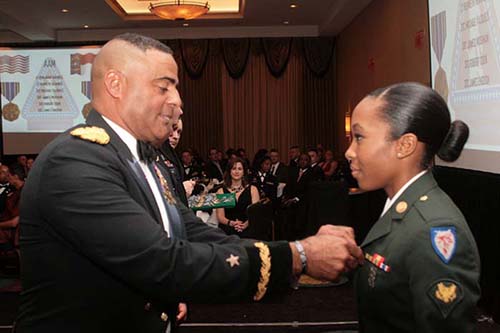
Army recruiters must contact, interview, and advise Army prospects.
It is the recruiter’s duty to obtain qualified applicants for enlistment into the Army.
Recruiters must contact representatives of schools, public officials, personnel managers, community liaisons, parents of applicants, clergy, and others to present the Army as an employment and career opportunity.
Presenting formal and informal conversations in regards to the advantages of the Army at civil and service organizations and to student bodies is the best way for a recruiter to stay in the eye of the community.
2. Advertising and marketing

Advertisement is more than half of the game when it comes to recruiting.
Distributing and displaying recruiting publicity materials is the lifeblood of successful recruiting.
It is important for a recruiter to establish a rapport with local radio stations, television studios, and newspaper agencies.
Businesses that can put a face and name to the massive Army makes them more likely to cooperate and assist in recruiting efforts.
However, such rapport can only come from the constant meet and greets throughout the community.
Writing, editing, and presenting recruiting material for use by local agencies and other media work is becoming more and more relevant in the age of the Internet.
A recruiter that lends and exhibits motion pictures for civic, fraternal, and service organizations and educational institutions will have greater ability to attract prospects to the Army.
3. Interviewing future recruits

Interviews and counseling prospective enlistees is one of the biggest parts of being a recruiter.
A recruiter must touch on all topics by discussing individual aims and goals to include security, personal aptitudes, training opportunities, job satisfaction and stability, advancement, prestige, and military life.
An effective recruiter explains Army benefits including: medical care, dependent allowance, housing, reenlistment bonus, retirement program, military/civilian educational opportunities, travel, recreational benefits, and all similar programs.
Related Article – National Guard Military (MOS 31b): Career Details
Evaluating an applicants’ occupational, educational, and psychological background to determine Army programs with professionalism and precision is imperative to bringing in great recruits.
It is a recruiter’s responsibility to explain the occupational and organizational structure of the Army to all future recruits and their families, as well as all others who are interested.
4. Evaluations
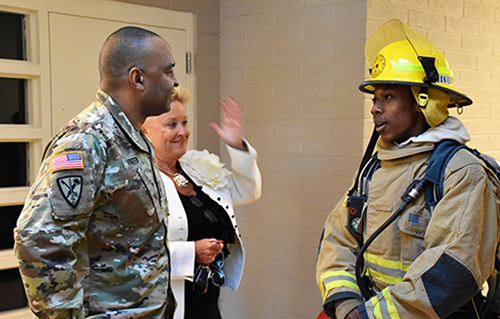
Recruiters are the administers and scorers of physical examinations, and enlisted screening test of prospects and advises with regard to reasonable occupational aims within the Army.
They must also inform disqualified applicants, assist in administration of Armed Services Vocational Battery or ASVAB (which is basically the SAT/ACT of the military) and explain the results to school officials and students.
5. Administration

It is important to advise prospects of disqualifications that can be waiverable and assist in preparation of waiver application.
This is the process of admitting to a disqualifying factor of a prospect and getting permission to join anyway.
Related Article – 20 Health Conditions That May Disqualify You From Military
Needless to say that involves a large amount of paperwork and administration time.
A recruiter gathers individual data and prepares forms and documents in regards to enlistment processing.
Arranging transportation, meals, and lodging for prospects when required is important as many prospects are still minors and/or students.
Maintaining prospect individual files, school program folders, and prospecting lists.
A good recruiter assists in market research and analysis of recruiting territory and makes appropriate recommendations to station commander.
Pros and Cons to Recruiting
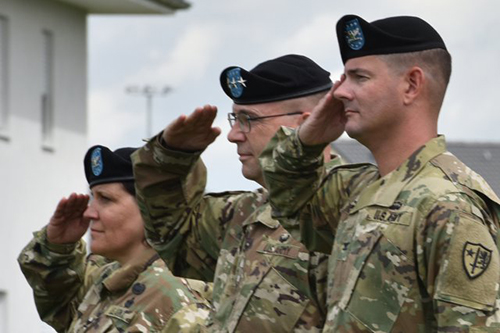
The list of duties for a recruiter are many.
Army recruiters have a tedious and somewhat stressful job and it is not for everyone.
Below is a list of pros and cons that could help you weigh the decision of becoming an Army recruiter.
Pros:
- Additional pay added to paycheck
- Prestige gathered from a highly respected post in the Army
- Career booster as it will place an NCO above the others as they seek high rank
- Lighter duty compared to serving in combat arms units
- Many perks like work car, phone, computer, credit card, etc
- More clothing allowance provided
Cons:
- Stressful job, that requires long work days
- Expected to meet quotas
- Working with the community at large can prove to be tedious
- Separated from your home base and unit
Summary
Army recruiters have a very tedious and prestigious job.
Those who seek to become a recruiter must do so with full intent and motivation.
While the extra payment is not much and the duties are plenty, the career advancement provided by serving as a recruitment and retention NCO can not be rivaled.
If you have the due-diligence for office work, astuteness for advertising and marketing, and discipline to stay on message and ahead of quotas, you will make an excellent recruiter and will be well on your way to a hearty military career.
Featured Image: defense.gov
- Ikon Pass Military Discount: Learn How To Save Big - January 31, 2025
- RTIC Military Discount: Find Out How To Save Big on Gear - January 30, 2025
- Traeger Military Discount: Learn How To Save Big on Smokers - January 28, 2025

